“My father was my inspiration”

Text: Martina Hošková and M.Zisso; Photo: Archive
Jakub Stárek, an elected representative of Prague 6 for seventeen years and its Mayor for over a year, acknowledges his father, František Stárek Čuňas, a dissident and key member of the Czech underground, as being his greatest inspiration. Sometimes, the Mayor’s straightforward answers give a feeling of an echo of these old-times warriors, who “have tough skin, but are always open”. As the Mayor puts it, “No sane person does politics because he wants to hear words of praise and applause in the square. I will be satisfied if we manage to get most of our plans to a stage where no one can question them, and especially if I keep the coalition together and achieve close cooperation with the opposition.”
We know you are the Mayor of Prague 6. What else can you tell us about yourself?
I have two wonderful children, a beautiful wife, and the most beautiful part of the city around me. And even though every day is not a fairy tale, I cannot imagine a different life. I am 41 years old and originally from East Bohemia, from the town of Česká Třebová. I spent my earliest youth there, and after the 1989 revolution we moved to Prague 6, where I still am today. Professionally, I spent most of my career in state and local government. For example, I spent eleven years of my civil service career at the Ministry of Education. In addition, I have been an elected representative of Prague 6 for seventeen years.
You are a member of the Civic Democratic Party (ODS). Where did your inspiration come from?
Joining a political party is not a given. I was the first (and so far, the last) in my family to ever do this. My father was clearly my inspiration: František Stárek Čuňas, a dissident and key member of the Czech underground, who lost several years of freedom for publishing the magazine Vokno and organizing unauthorized cultural events. After the revolution, Václav Havel asked him to take an important position in today’s Security Information Service. There, he was closely connected with political events, but, according to the law, was not allowed to enter politics. That’s why I entered politics at the age of 20.
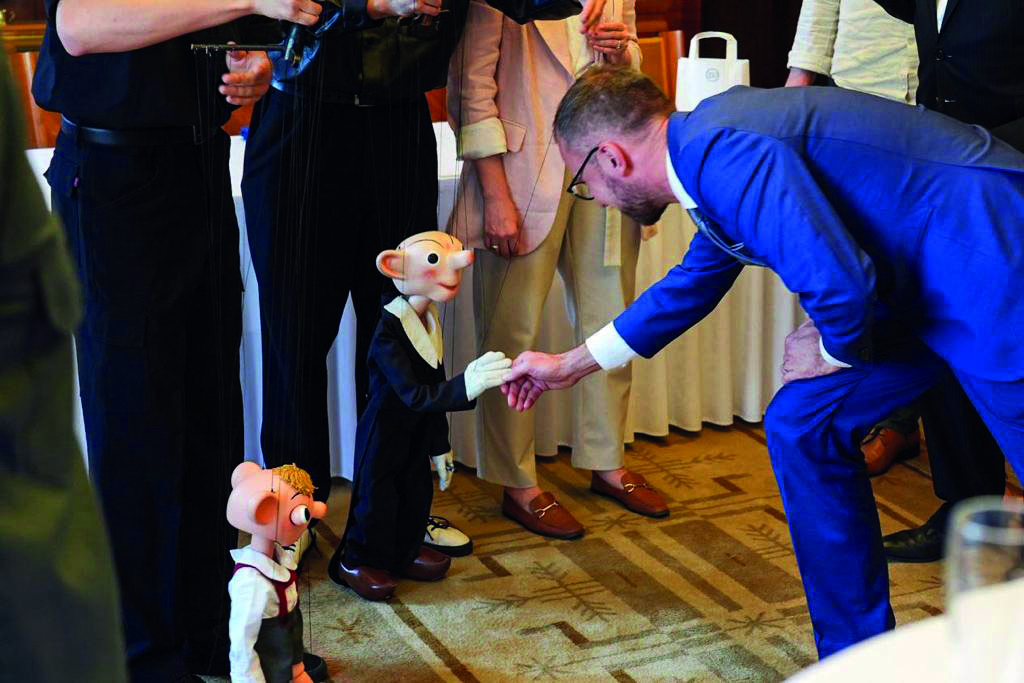
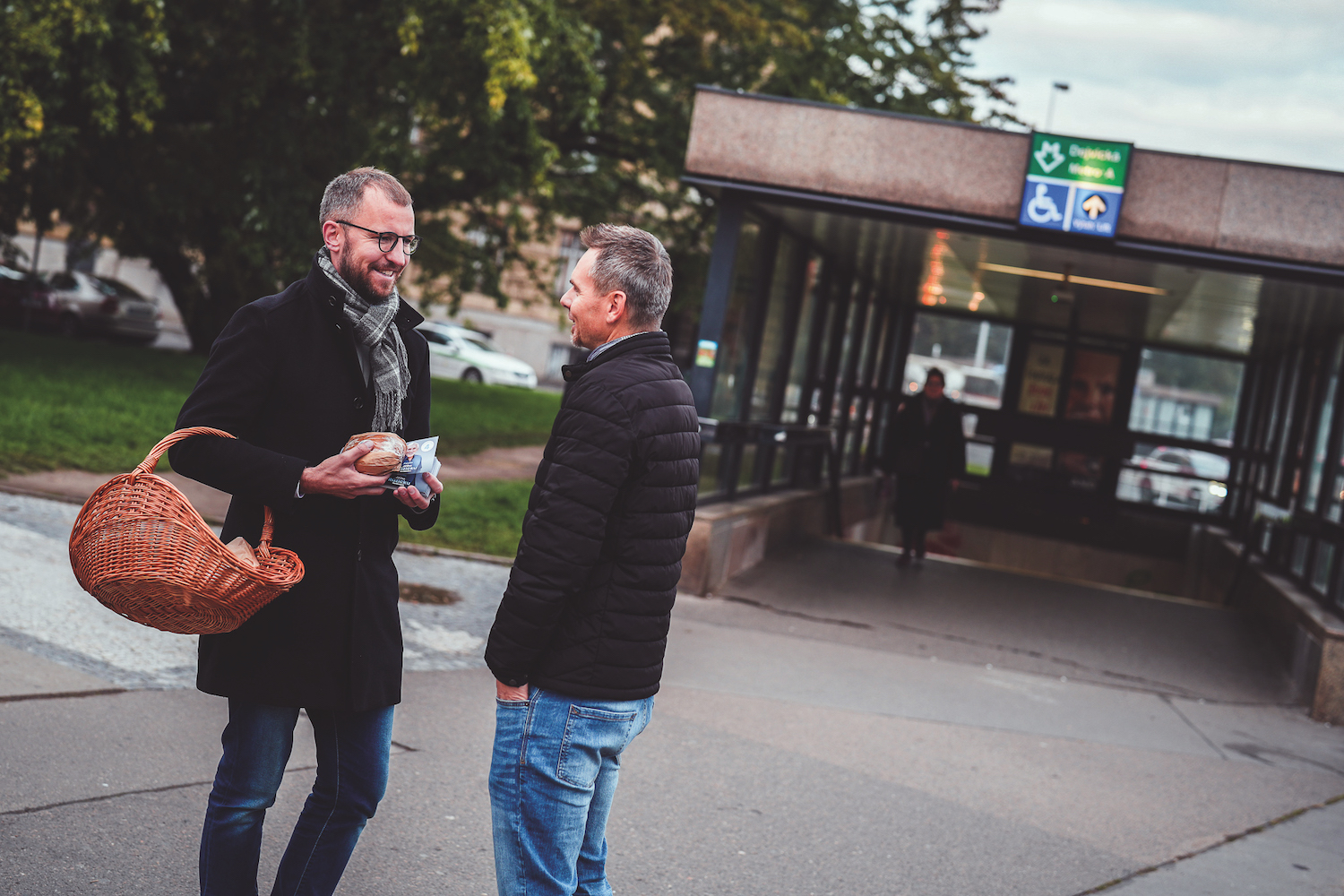
Was becoming a Mayor of Prague 6 your professional goal?
When I was first elected to the council, seventeen years ago, I could not imagine being a mayor. But I think that everyone who ever runs for office is toying with the idea and ambition for this highest position for a while. After many years, with hard work and sometimes with a good dose of luck, and thanks to great colleagues and partners, I became deputy mayor, and it was a short journey from there.
Where do you see the key role of a mayor?
The most important thing is to be there for people. And for the citizens of Prague 6, not only so that I can put things in order, but especially so that I can talk to them, give them strength, and listen to them patiently. Regardless of how difficult it is in today’s world of a thousand and one interests, (it is important) to push for improvement, even just with the little things in their lives.
You have been walking in the mayor’s shoes for over a year. Can you share some of your impressions?
It’s a real ride. The advantage was that we came very well prepared, and at the first meetings of the council we began to fulfil our obligations from the elections. We also managed to clearly establish the coalition agreement on key investments, as well as the vision of the district. This is because of the rule that if you do not make a firm decision in the first year of government, you have no chance of following through – this applies absolutely, and without compromise.
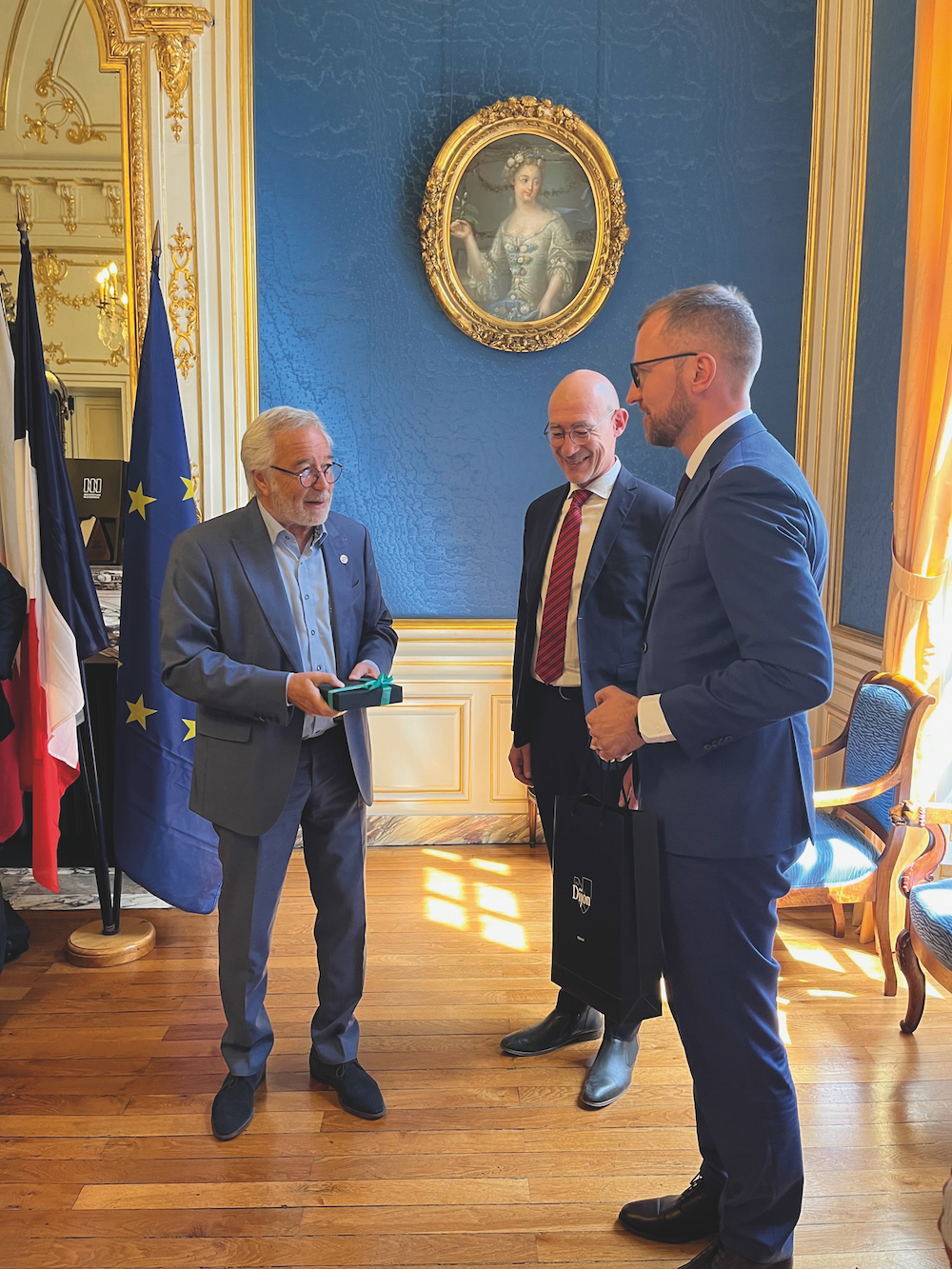
What are the most burning issues of the people in Prague 6? Are they unique compared to other Prague districts?
The citizens of Prague 6 are generally very satisfied. Why not, when we can live in the most beautiful part of the city? But there are problems here too. I consider transportation and education to be the two most important. The first is not at all unique, but historically there have been a series of decisions in transport, which, together with the increase in cars, turn the central parts of Prague 6 into highways and parking lots. For our satisfaction, several billions must be spent on completing the ring road around Prague, the internal road for the Vítězné náměstí bypass, and many other measures. For four years now, we have been in a declared “traffic emergency”.
In education, it’s simple. We have very high-quality schools, which on the one hand is great news, but on the other hand, attract cross-country people who are allowed to change their permanent residence by the shallow law, and put, for example, Central Bohemia on an equal footing with children who live next to the school. Our children and those from Central Bohemia have the same chance of getting into a (Prague 6) school. I find that unfair, discriminatory, and immoral.
In developing your district, what are the main challenges you and your colleagues are facing? Prague 6 is a wealthy part of the city, which was caused by several historical factors and good budget management. At present, however, we have progressed with the preparation of key investments, and are approaching the start of construction, e.g. a new hospital for long-term patients, an indoor swimming pool, a new polyclinic building, apartments for young people, sports grounds, etc. Even our savings will not be enough for that. Therefore, I consider finding the means to fulfil our visions, and at the same time maintain the level of services we provide to citizens, to be a key challenge.
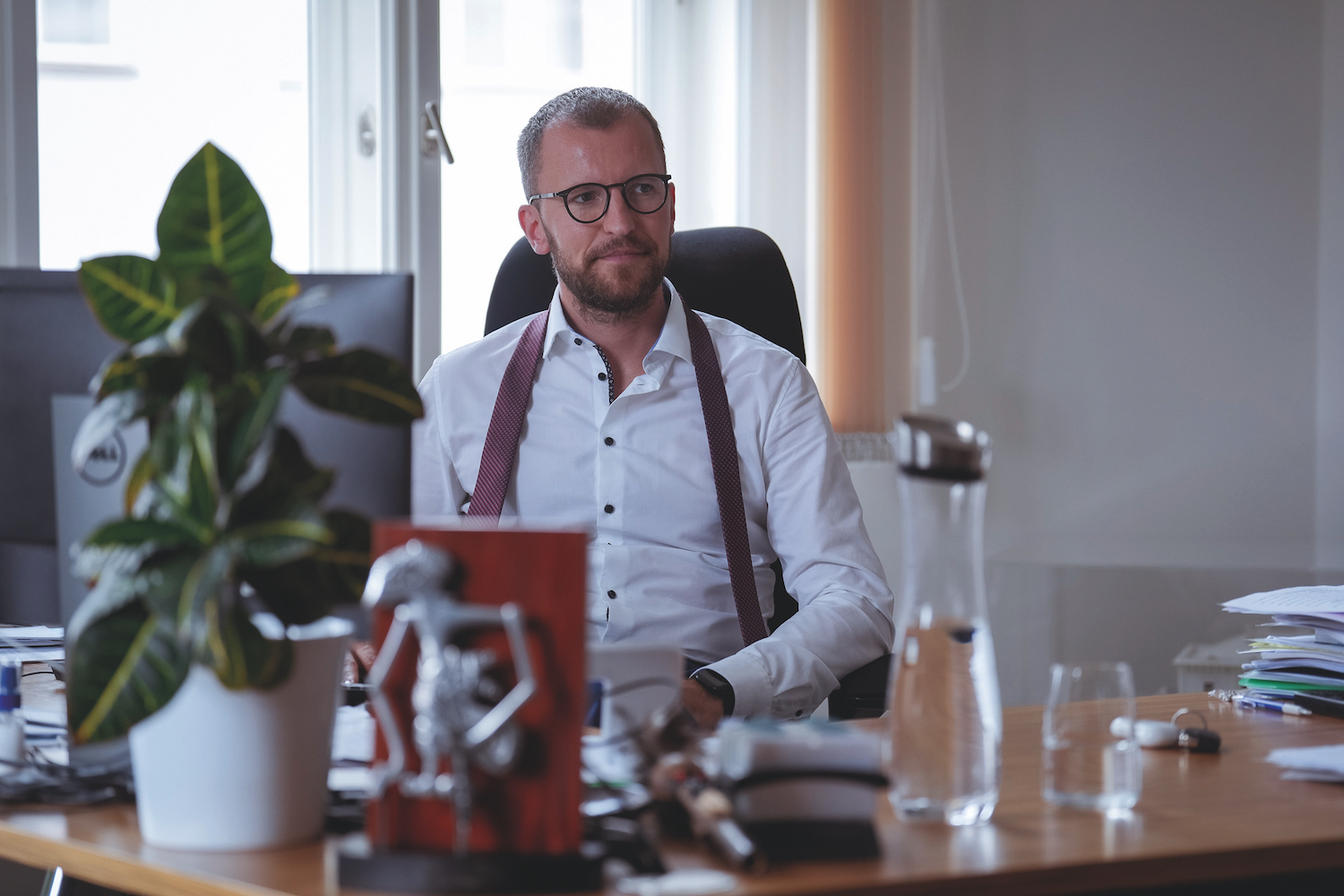

A mayor’s job comes hand in hand with a lot of criticism. How do you handle that?
After 17 years in the council, I’m used to it. It is essential not to leave out a single thought or criticism that is voiced, whether it is said by a pupil at a meeting at his primary school or by a senior at an event at a retirement home. You need to have tough skin, but always be open. It is surprising that even the biggest opponents on social networks are ready to listen and cooperate to improve Prague 6 during a conversation at the same table.
What are your plans as mayor for the coming years?
In addition to the completion of our key investment projects, we want to lead resistance against the already mentioned “fallout tourism”, and lead ministries and parliamentarians to change the Education Act. I would like to continue our development of openness, where I started a meeting of the entire management of the town hall and all their representatives directly in the streets where people live.
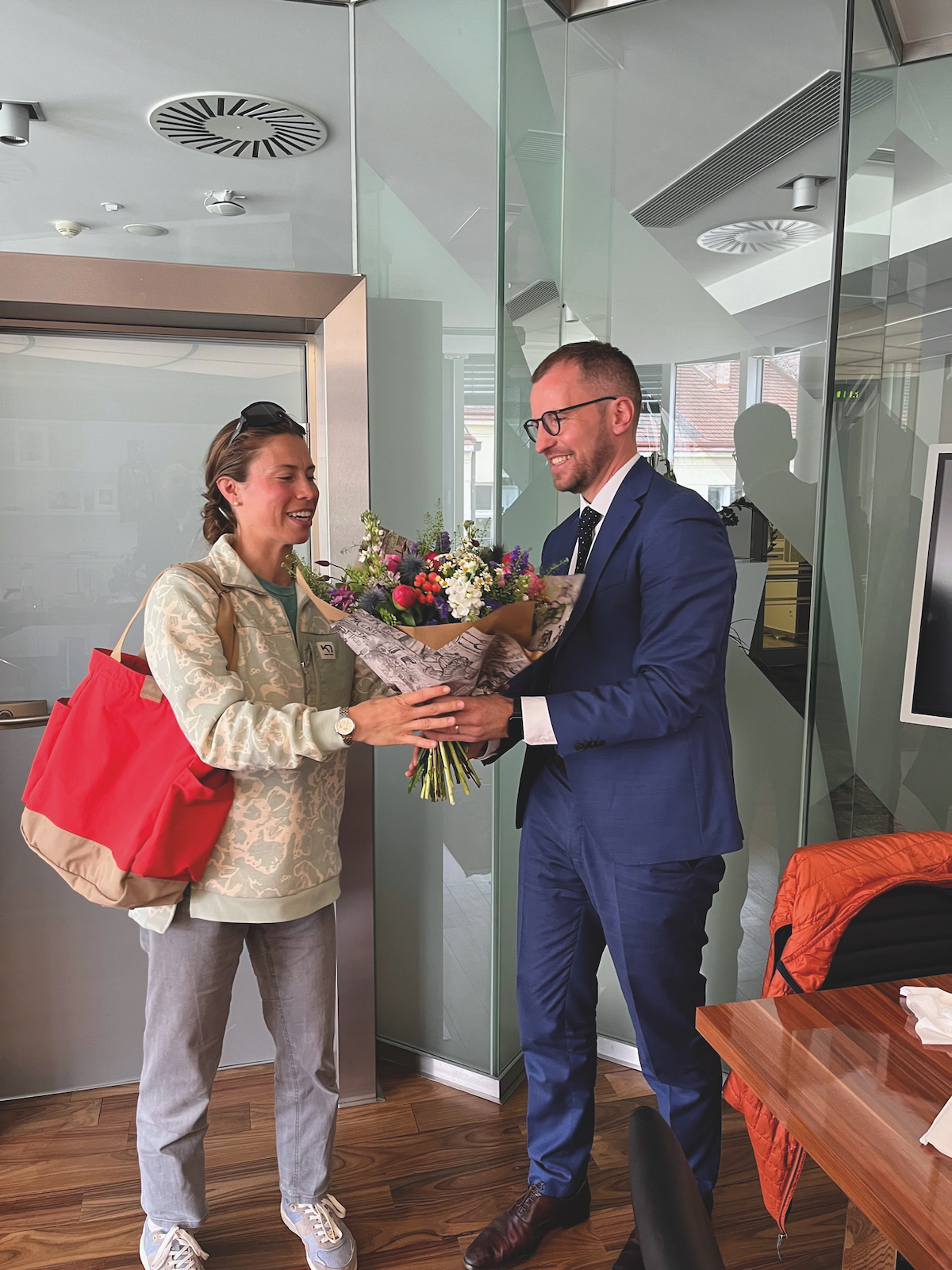
After four years in the position, will people say you were effective?
No sane person does politics because he wants to hear words of praise and applause in the square. I will be satisfied if we manage to get most of our plans to a stage where no one can question them, and especially if I keep the coalition together and achieve close cooperation with the opposition.
To conclude, an invitation to some of the many popular events taking place in Prague 6 would be nice. Every day, together with my colleagues at the town hall, we try to make people in our district live well. And I believe we are succeeding. Soon, we will celebrate Prague 6 Days, which is a traditional celebration of the existence of the city district, relating to several cultural events. Among the oldest are, for example, the Opera in Šárka, where this year we will commemorate 110 years since the foundation of the natural theatre in Šárka. In fact, almost the entirety of September will be marked by celebrations, which will also culminate in the traditional event of the reconstruction of the battle on Bílá hora. Throughout the year, residents and visitors of Prague 6 can also look forward to other traditional events, such as the Embassy Festival, Ladronka Fest, and the traditional Witches on Ladronka.

